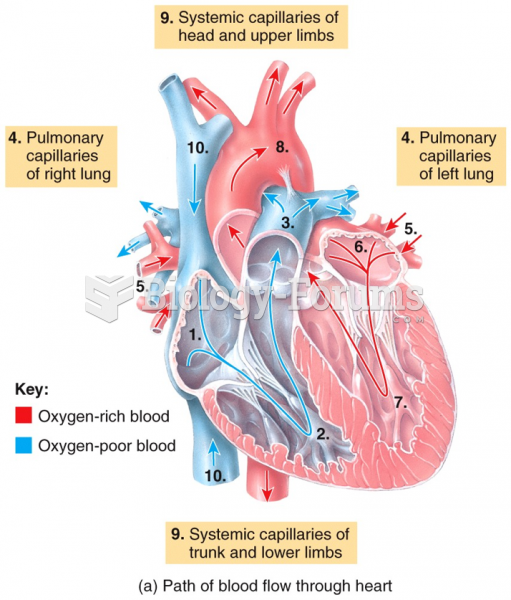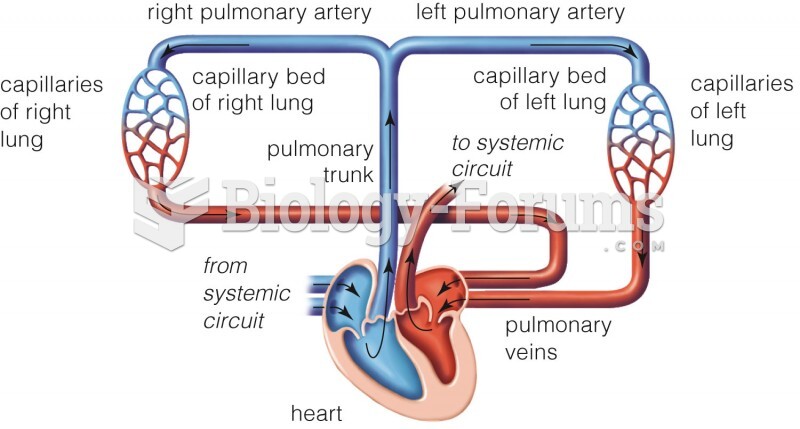|
|
|
For pediatric patients, intravenous fluids are the most commonly cited products involved in medication errors that are reported to the USP.
Before a vaccine is licensed in the USA, the Food and Drug Administration (FDA) reviews it for safety and effectiveness. The CDC then reviews all studies again, as well as the American Academy of Pediatrics and the American Academy of Family Physicians. Every lot of vaccine is tested before administration to the public, and the FDA regularly inspects vaccine manufacturers' facilities.
This year, an estimated 1.4 million Americans will have a new or recurrent heart attack.
More than 34,000 trademarked medication names and more than 10,000 generic medication names are in use in the United States.
The Romans did not use numerals to indicate fractions but instead used words to indicate parts of a whole.







